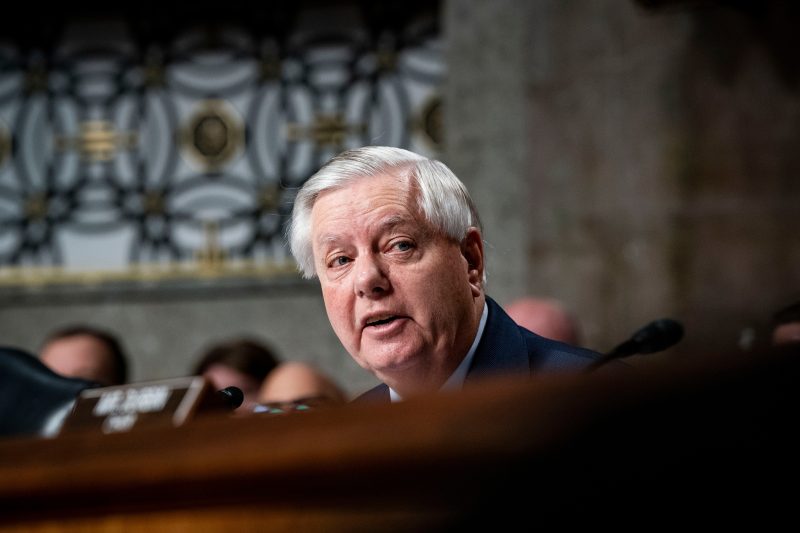Lindsey Graham: A Longtime Foreign Policy Hawk Bows to Trump on Ukraine
When it comes to foreign policy, Senator Lindsey Graham has long been known as a hawk within the Republican Party. From advocating for military intervention in Syria to pushing for a tougher stance against Iran, Graham has been vocal about his aggressive approach to international affairs.
However, recent events surrounding the impeachment inquiry into President Donald Trump have raised questions about Graham’s consistency and independence as a foreign policy thinker. Specifically, Graham’s shift in how he views the situation in Ukraine has drawn scrutiny and highlighted the influence that Trump holds over the senator.
Ukraine, a country in Eastern Europe, has been at the center of a political firestorm in the United States. The impeachment inquiry was launched after a whistleblower complaint alleged that President Trump solicited interference from Ukraine in the upcoming 2020 presidential election. The controversy surrounding this issue has divided politicians along party lines, and Graham’s response has been particularly noteworthy.
Before the release of the whistleblower complaint and the subsequent revelations, Graham had been a vocal critic of Russia and a strong supporter of helping Ukraine defend itself against Russian aggression. He was known for his tough rhetoric, calling for sanctions against Russia and advocating for military aid to Ukraine.
However, as the impeachment inquiry unfolded and evidence mounted against President Trump, Graham’s tone and stance began to shift. He went from being a vocal advocate for Ukraine to downplaying the seriousness of the allegations against the president.
This change in Graham’s position has raised concerns about his motivations and his willingness to put party loyalty above principles. Many argue that Graham’s shift can be attributed to his close political alliance with Trump and his desire to defend the president at all costs. The influence of Trump over Graham is evident, with the senator even voicing support for the president’s unfounded claims that Ukraine, not Russia, meddled in the 2016 U.S. presidential election.
Graham’s reversal on Ukraine is particularly surprising given his history as a staunch advocate for strong foreign policy measures. This shift has led some to question whether his position on other issues, such as Syria or Iran, is equally susceptible to change in order to align with Trump’s agenda.
The power dynamics between politicians and the executive branch have always been a delicate balance in American politics. However, Graham’s transformation on Ukraine illustrates the extent to which some lawmakers are willing to abandon their principles in order to maintain favor with the president.
As the impeachment inquiry proceeds, Lindsey Graham’s evolution on Ukraine will continue to be closely examined. It raises important questions about the integrity and independence of lawmakers, as well as the potential consequences of aligning too closely with any given president.
This episode serves as a reminder that as citizens, we must hold our elected officials accountable and demand consistency and principled decision-making. The ability to think independently and prioritize the national interest over party loyalty is crucial in maintaining a strong and effective foreign policy stance.
In conclusion, Lindsey Graham’s evolving position on Ukraine reflects the extent to which some politicians are willing to prioritize personal alliances over consistent foreign policy principles. This shift has raised concerns about Graham’s independence and underscores the importance of holding elected officials accountable for their actions. As the impeachment inquiry unfolds, it is imperative that we continue to scrutinize the decisions and motivations of our lawmakers to ensure a strong and principled foreign policy.



























